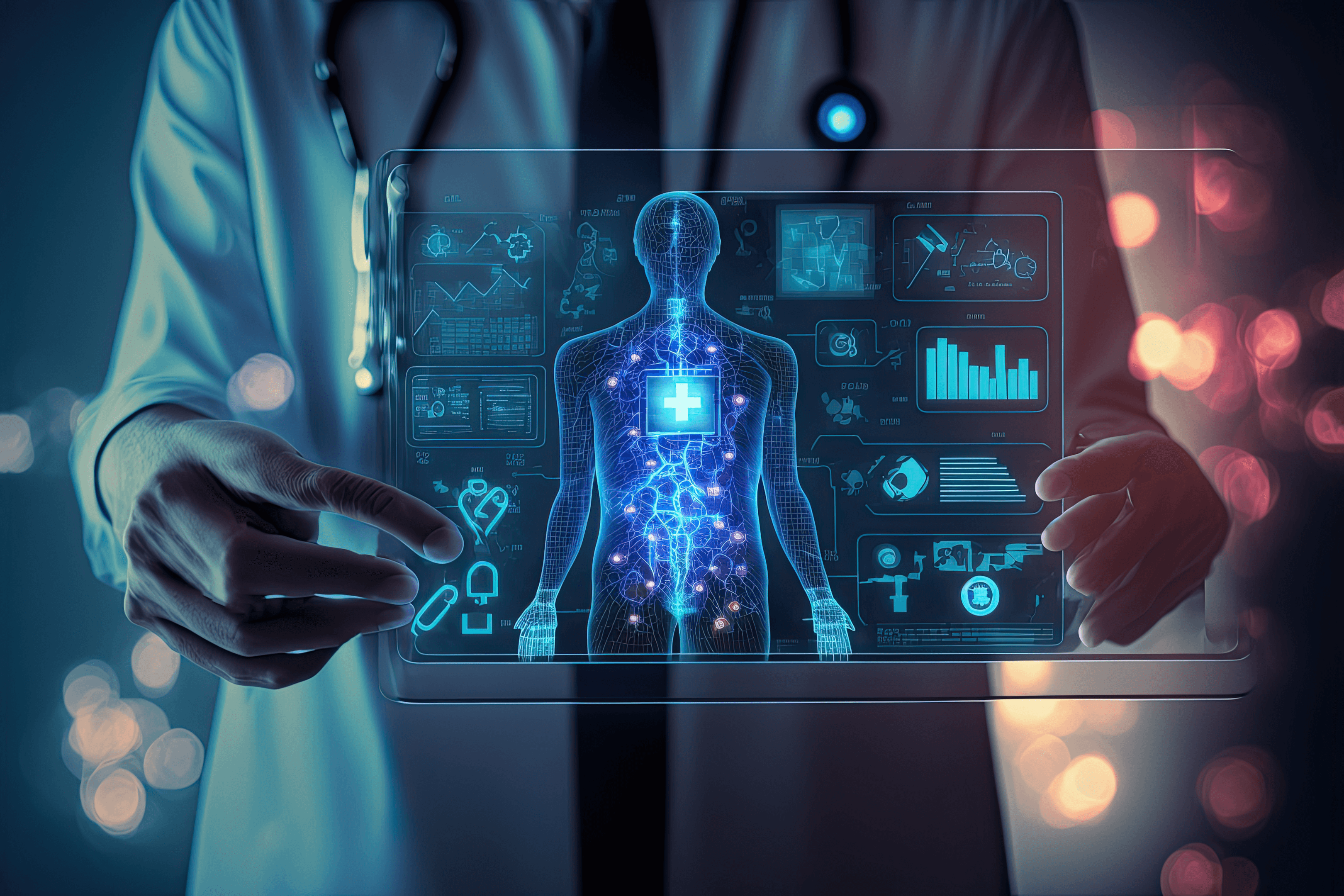
AI in Healthcare: Revolutionizing the Industry
Artificial Intelligence (AI) is not just a buzzword; it's a transformative force reshaping industries across the globe. And one of the sectors experiencing a seismic shift due to AI is healthcare. The convergence of advanced machine learning algorithms, big data, and computing power is revolutionizing how healthcare is delivered, making it more efficient, accurate, and patient-centric than ever before. In this blog, we'll delve into the ways AI is revolutionizing the healthcare industry.
The Current State of Healthcare
Before we dive into the AI revolution, let's take a quick look at the healthcare landscape today. The healthcare sector, while advanced in many ways, is not without its challenges. These include:
Aging Population: The world's population is aging, leading to an increased demand for healthcare services.
Rising Costs: Healthcare costs are skyrocketing, straining resources and accessibility.
Data Overload: Vast amounts of healthcare data are generated daily, making it challenging for healthcare professionals to process and extract actionable insights.
Medical Errors: Human errors in diagnosis and treatment are a significant concern, leading to adverse outcomes for patients.
This is where AI steps in as a game-changer.
Diagnosis and Treatment
One of the most promising applications of AI in healthcare is in diagnosis and treatment. Let's explore a few areas where AI is making a substantial impact:
1. Medical Imaging:
Medical imaging, including X-rays, MRIs, and CT scans, generates enormous amounts of data. AI algorithms can process and analyze these images quickly and accurately. For instance, AI-powered systems can detect anomalies in radiology images with high precision, aiding radiologists in making more accurate diagnoses.
2. Early Disease Detection:
AI-driven predictive analytics can help in early detection of diseases. Machine learning algorithms can analyze patient data, such as medical history, lifestyle, and genetic information, to identify individuals at high risk for specific diseases. This enables proactive interventions and personalized treatment plans.
3. Drug Discovery:
Drug discovery is a time-consuming and expensive process. AI can significantly speed up the identification of potential drug candidates by analyzing vast datasets, predicting how they might interact with biological systems, and even designing new molecules.
4. Personalized Medicine:
AI can analyze individual patient data to tailor treatment plans and medications. This ensures that patients receive the most effective and least harmful treatments, minimizing adverse effects and improving outcomes.
Patient Care and Engagement
AI is not limited to the clinical side of healthcare; it's also improving the patient experience and engagement:
5. Chatbots and Virtual Assistants:
AI-powered chatbots and virtual assistants can provide patients with 24/7 access to medical information, appointment scheduling, and even basic health advice. They help ease the burden on healthcare staff and improve patient satisfaction.
6. Remote Monitoring:
AI-driven wearables and remote monitoring devices allow patients to be monitored outside of healthcare facilities. These devices can alert healthcare providers to potential issues, reducing the need for frequent in-person visits.
7. Predictive Analytics:
Hospitals are using AI to predict patient admission rates, enabling better resource allocation and reducing patient wait times. Predictive analytics can also help hospitals manage inventory and staffing more efficiently.
Administrative Efficiency
The healthcare system can be marred by administrative inefficiencies. AI has the potential to streamline various administrative processes:
8. Electronic Health Records (EHR):
AI can help automate the management of electronic health records, making them more accessible and secure. EHR systems can be trained to recognize and extract relevant information from unstructured clinical notes, improving data accuracy and speeding up data entry.
9. Billing and Claims Processing:
AI can automate billing and claims processing, reducing errors and lowering the administrative burden on healthcare providers. This leads to faster reimbursement and cost savings.
Ethical and Regulatory Challenges
While AI offers incredible promise, it also presents ethical and regulatory challenges:
10. Data Privacy and Security:
AI relies on vast amounts of data, which raises concerns about patient data privacy. Maintaining the security and confidentiality of patient information is paramount.
11. Accountability and Bias:
As AI algorithms learn from historical data, they may perpetuate biases present in that data. It's crucial to address algorithmic bias and ensure accountability for AI decisions in healthcare.
12. Regulatory Framework:
Healthcare is highly regulated, and AI introduces new complexities. Establishing appropriate regulatory frameworks to ensure the safety and effectiveness of AI-driven healthcare solutions is a critical challenge.
The Road Ahead
AI is not a magic wand that can instantly solve all healthcare challenges. However, it is a powerful tool that, when used judiciously and ethically, can significantly improve healthcare access, quality, and efficiency. The road ahead for AI in healthcare involves addressing the challenges mentioned above and continually innovating to unlock its full potential.
AI-driven healthcare is a journey, and as the technology evolves, we can expect more breakthroughs in diagnostics, treatment, patient care, and administrative efficiency. The AI revolution in healthcare is not just about making the industry more advanced; it's about making it more human-centered and compassionate.